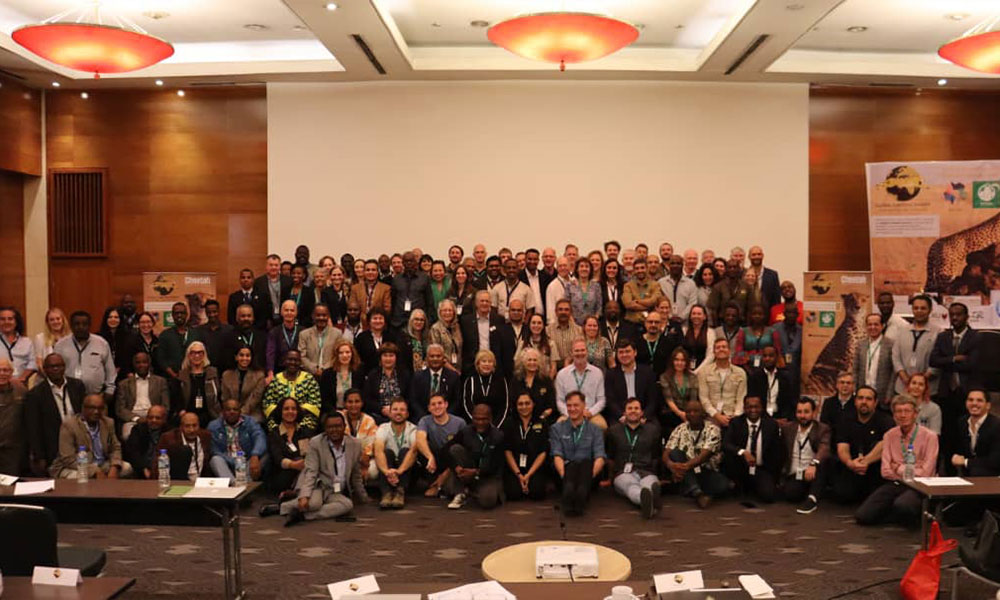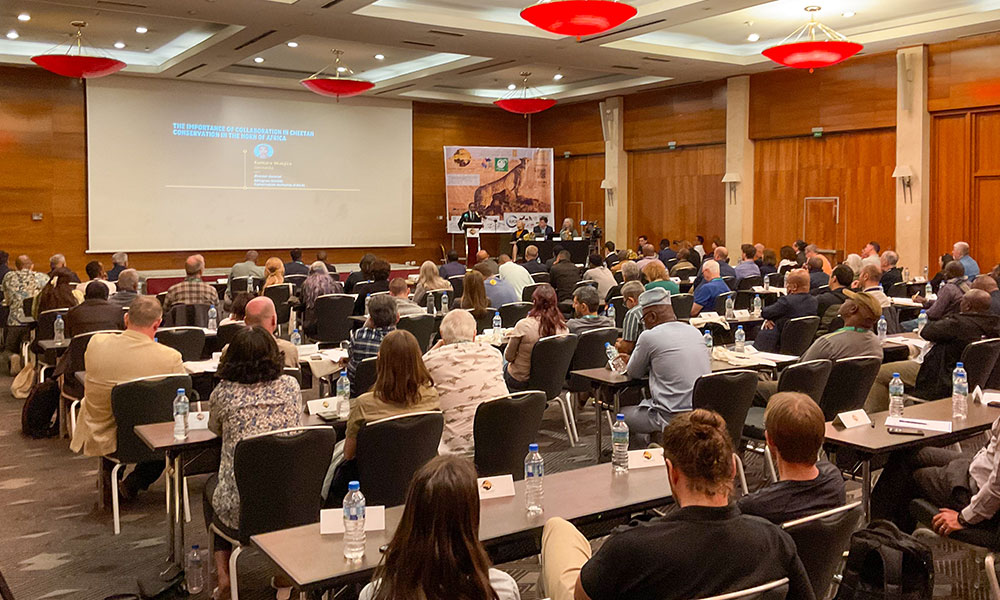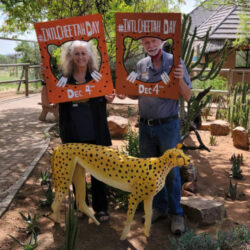First Global Cheetah Summit Concludes with Key Conservation Commitments
-

- by CCF Staff February 8, 2024
OTJIWARONGO, Namibia, 8 February 2024 – The Cheetah Conservation Fund (CCF) announces the successful conclusion of the first Global Cheetah Summit, which took place in Addis Ababa, Ethiopia, from 28th to 31st January 2024. This event marked a significant step forward in cheetah conservation, gathering over 130 experts from various fields including science, conservation, academia, community leadership, government, and non-governmental organizations. Participants represented more than 80 institutions from across Africa, the Middle East, India, Europe, the United Kingdom, and the United States all committed to the cause of conserving the cheetah.
The summit, under the theme “Conservation Through Collaboration, A Call to Action” successfully culminated in the signing of the Addis Ababa Declaration for Global Cheetah Conservation. The Declaration, ratified by summit participants, emphasizes the urgent need for enhanced conservation efforts to protect the cheetah, which is at risk of extinction with fewer than 7,500 mature individuals remaining in the wild.
In her address, Professor Laurie Marker, Founder and Executive Director of CCF, presented a comprehensive analysis of the challenges facing cheetah populations. She highlighted a critical concern: “The vast majority of cheetah populations have diminished below the number of individuals needed for long-term viability. We count a total of 33 populations of cheetahs and only two of those populations are considered viable. Sixty percent of the populations now consist of fewer than 100 individuals. If the species is to survive, conservation efforts require expansive action. The cheetah conservation crisis is intertwined with a complex web of social, economic, and environmental challenges. Our efforts must not only aim at stabilizing but also at increasing viable cheetah populations throughout their range.”
The Global Cheetah Summit began with participants establishing a collaborative foundation. The first day was devoted to understanding the cheetah’s critical status through comprehensive reviews of their populations, the threats they face, their genetic health, and the overarching challenges in conservation efforts.
Professor Amy Dickman, from WildCRU at the University of Oxford, one of the summit’s key participants and speakers, expressed optimism about the potential for progress, noting, “Through a unified approach, with all the information we have, there’s still time to address the threats causing the decline in cheetah populations across their range. We know this because we’ve seen improvements in areas with active conservation programs that are guided by research and include community engagement with education. This shows us the power of informed and collaborative conservation efforts in making real progress.”
Discussions on day two revolved around best practices in translocation, strategies for mitigating human-wildlife conflict, and ways to combat the illegal wildlife trade. The third day aimed at empowering change, with talks on initiating community-based efforts, seeking innovative financing for conservation, and turning the vision for conservation into concrete steps. The summit culminated on the fourth day with the drafting of the Addis Ababa Declaration.
The Addis Ababa Declaration for Global Cheetah Conservation details initiatives to be pursued over the next two years, focusing on stakeholder engagement, development of strategic conservation plans and formation of working groups around key topics. An upcoming telemeeting on 1st July 2024 aims to maintain the momentum from the summit and outline further steps for implementing the agreed-upon actions.
Interview Availability: Interviews with Prof. Laurie Marker and other prominent summit participants are available upon request to discuss the outcomes of the summit and ongoing conservation efforts.
Acknowledgements: The summit’s achievements were made possible through the support of Ethiopian Wildlife Conservation Authority (country host), NEOM, the Royal Commission for AlUla, Ethiopian Air, and Oliver Wyman. Collaborations with key partners included Oxford University’s WildCRU, the Cheetah Conservation Initiative, and several IUCN Specialist Groups.




# # #
Cheetah Conservation Fund (CCF)
Established in 1990, CCF is at the forefront of global cheetah research and conservation efforts, dedicated to ensuring the survival of the cheetah in its natural habitat through research, conservation strategies, education, and partnerships. With its headquarters in Namibia and a field base in Somaliland, CCF operates the world’s longest-running program dedicated to cheetah conservation. For more on how to support CCF’s initiatives, please visit www.cheetah.org.
Ethiopia Wildlife Conservation Authority (EWCA)
Vision and Mission Statement. To develop and conserve scientifically Ethiopia’s wildlife resources and protected areas through active participation of community and other stakeholders, to bring ecological, economic, and social benefits for Ethiopians as well as the global community and pass them on to the next generation as a heritage.
Media Contacts:
For media inquiries, please contact:
Prof. Laurie Marker, director@cheetah.org +264 811247887
Dr. Bruce Brewer, bruce@cheetah.org
More photos available upon request
Related Reading

